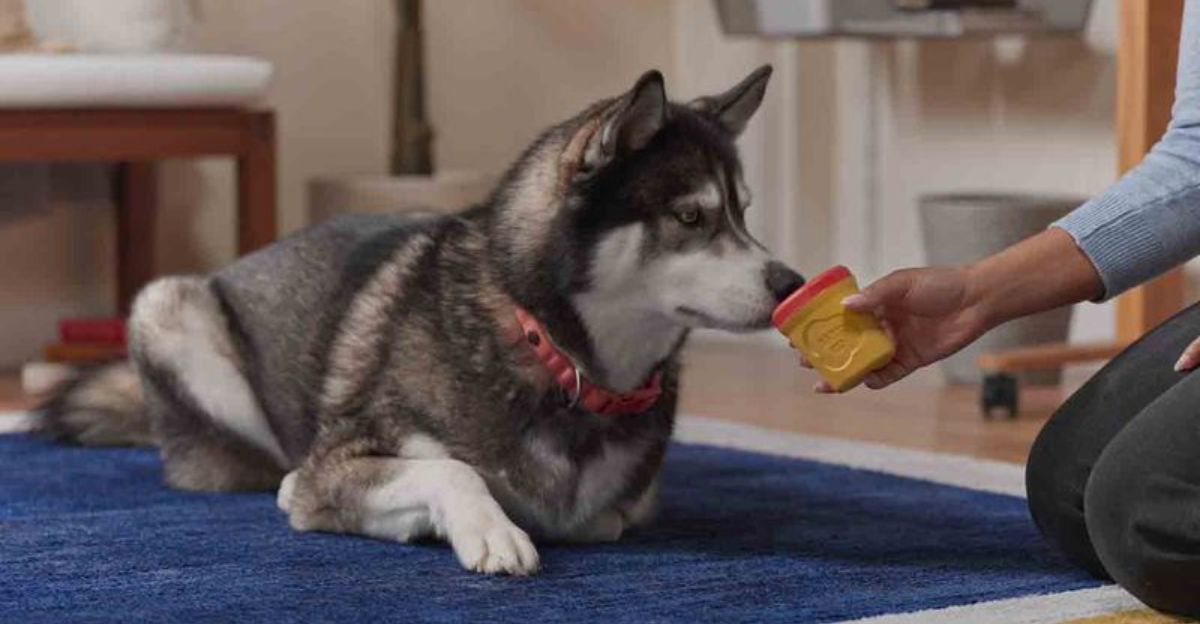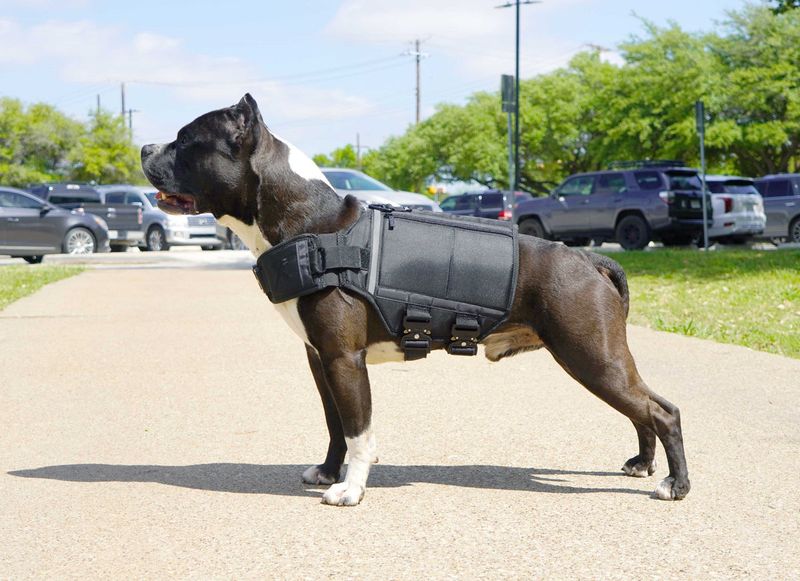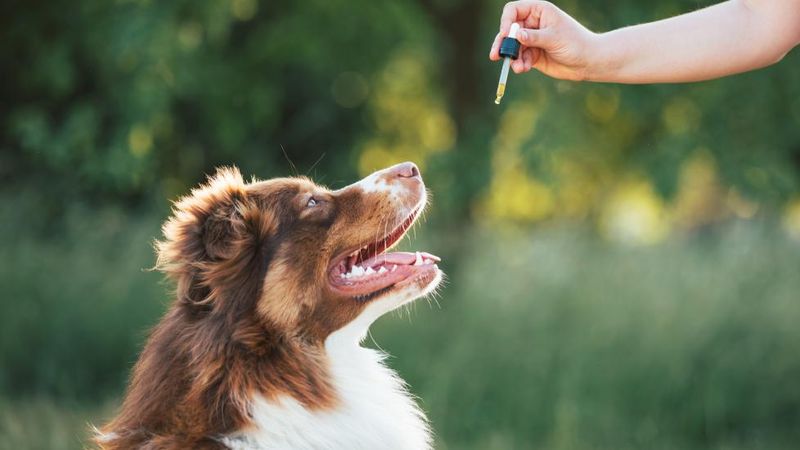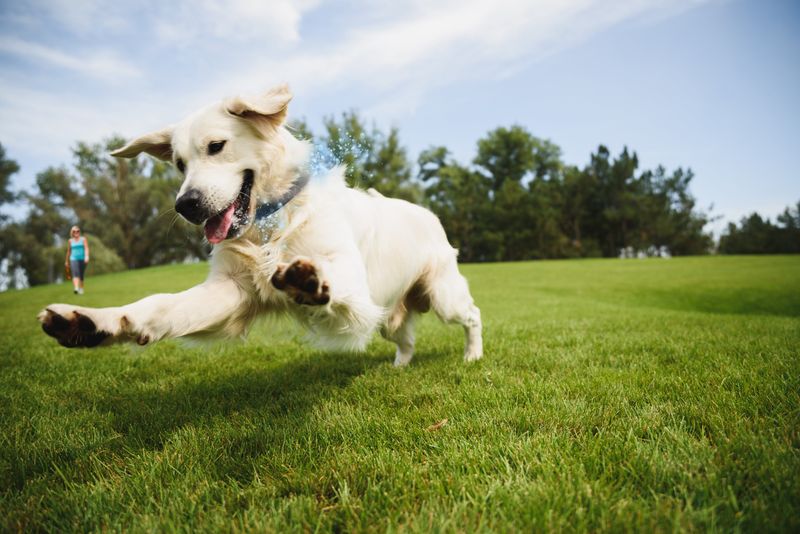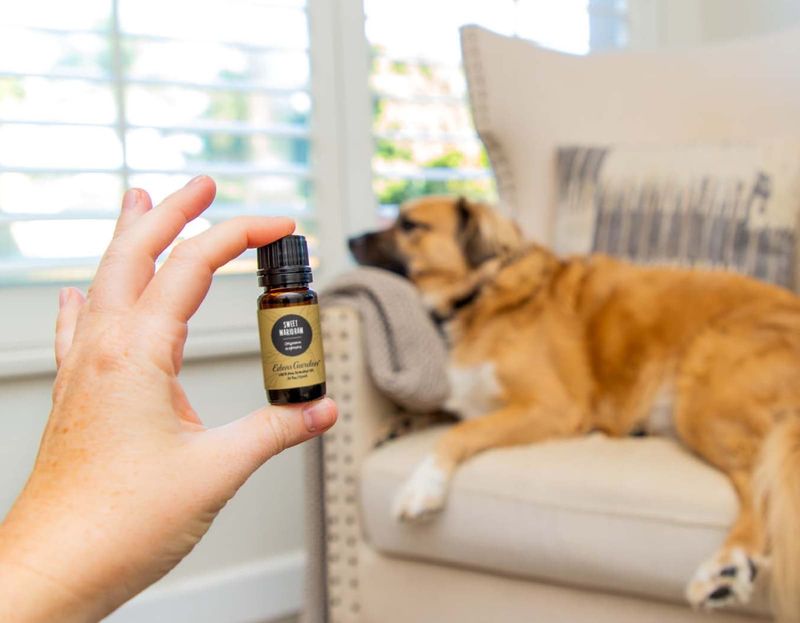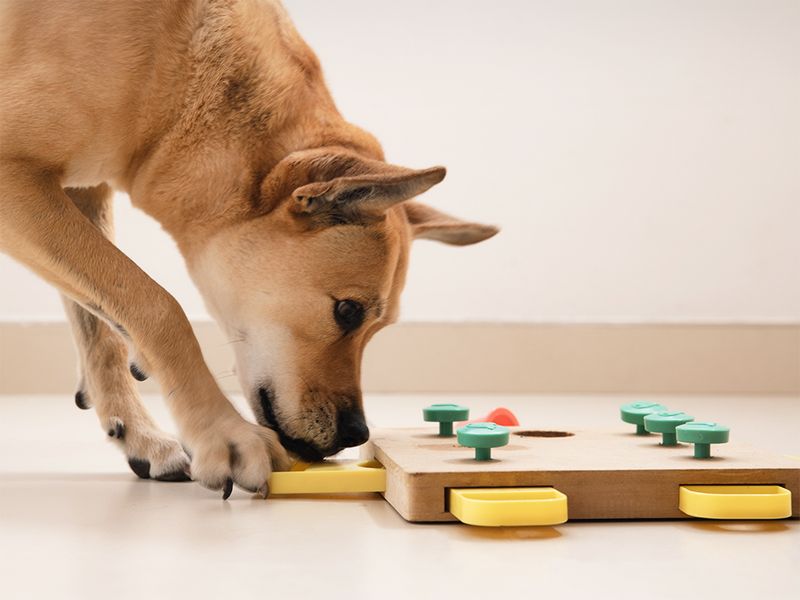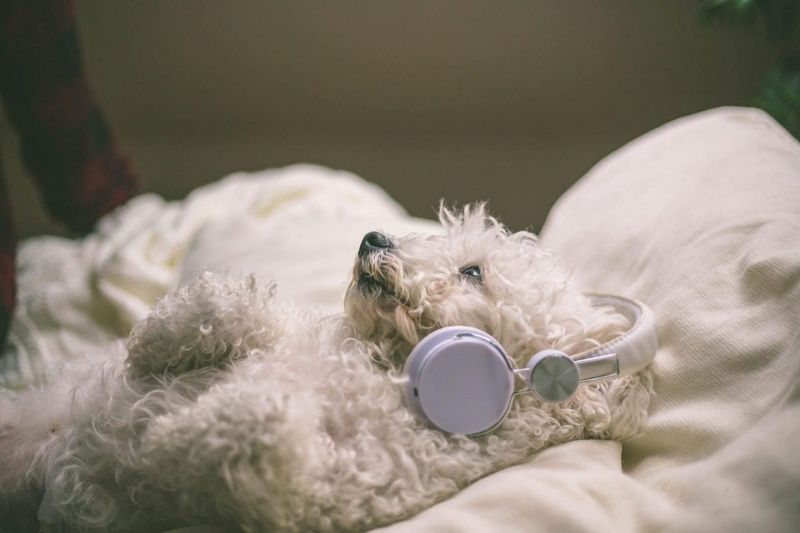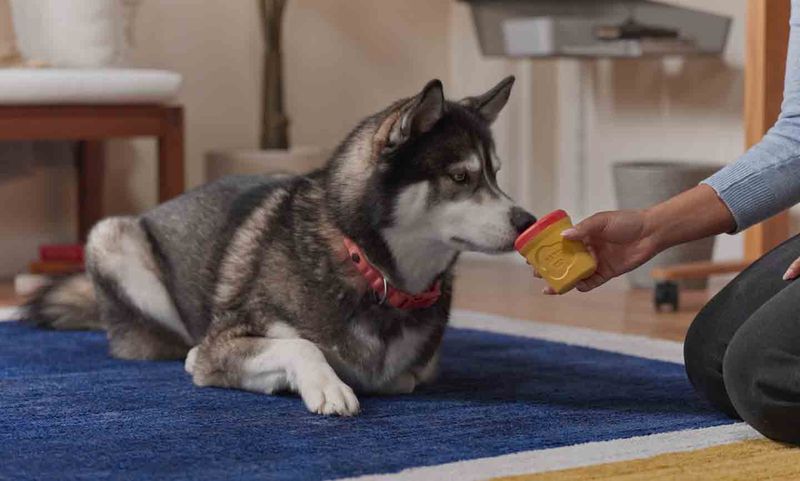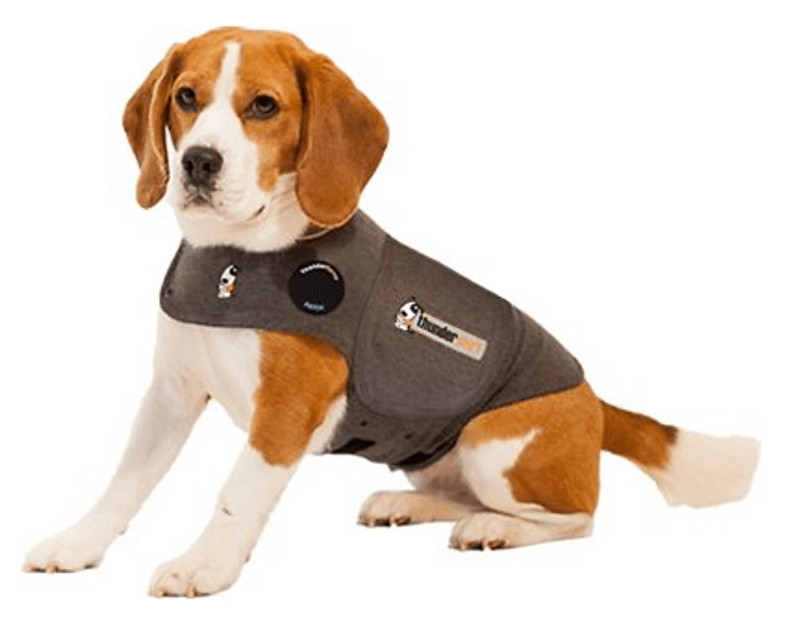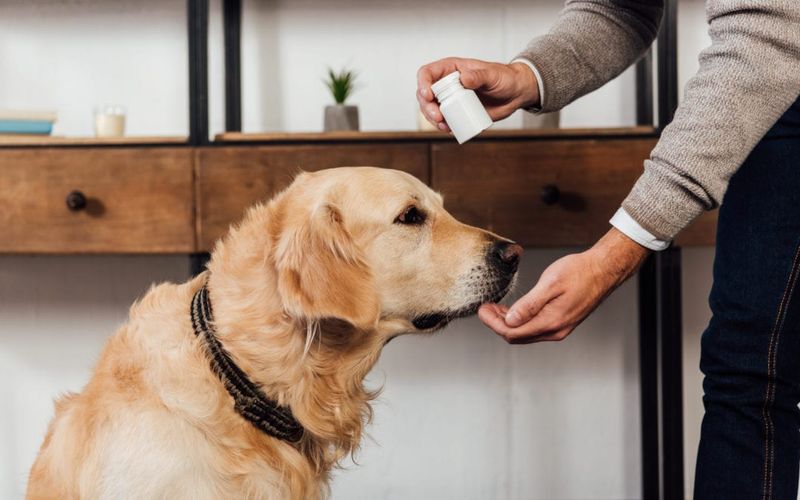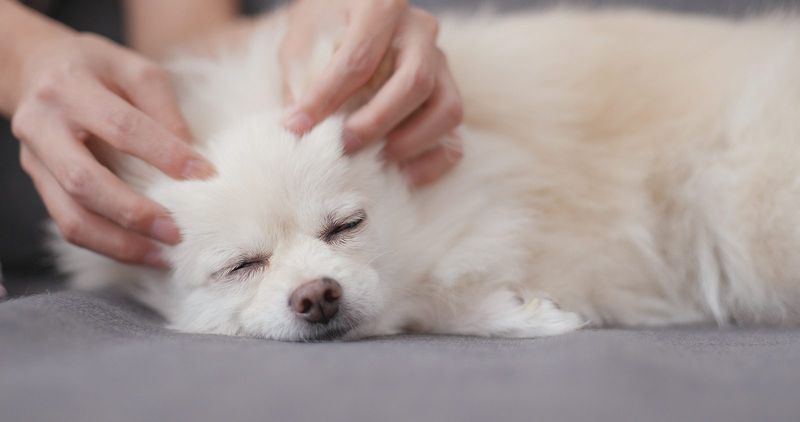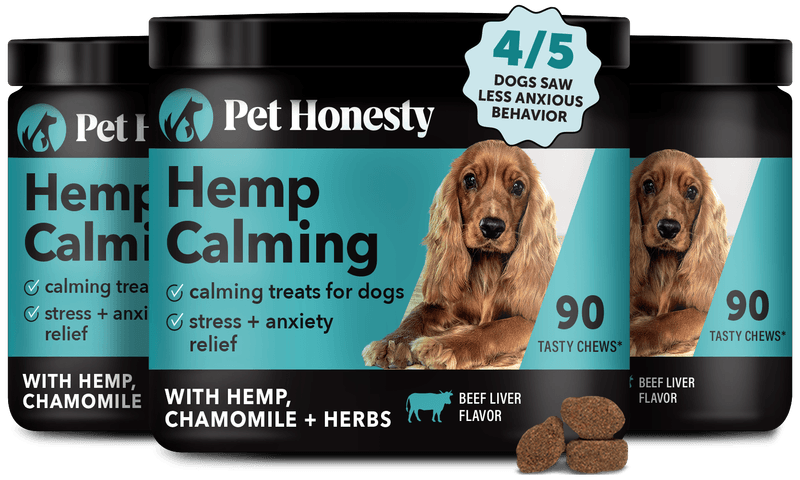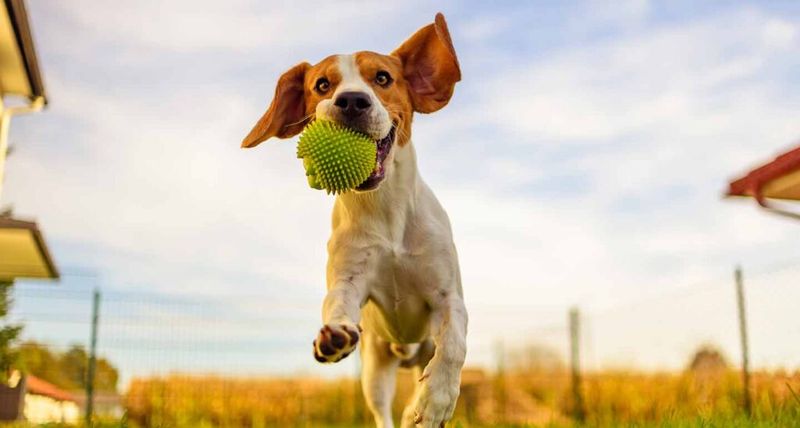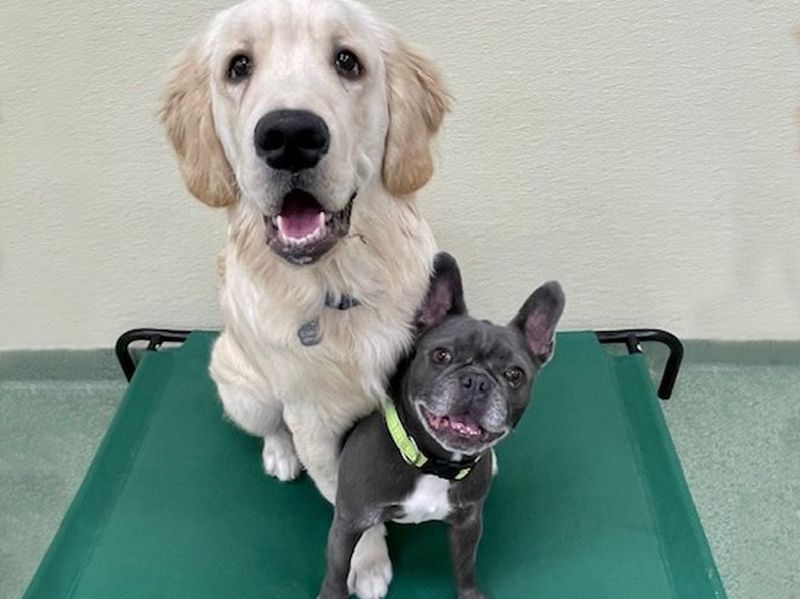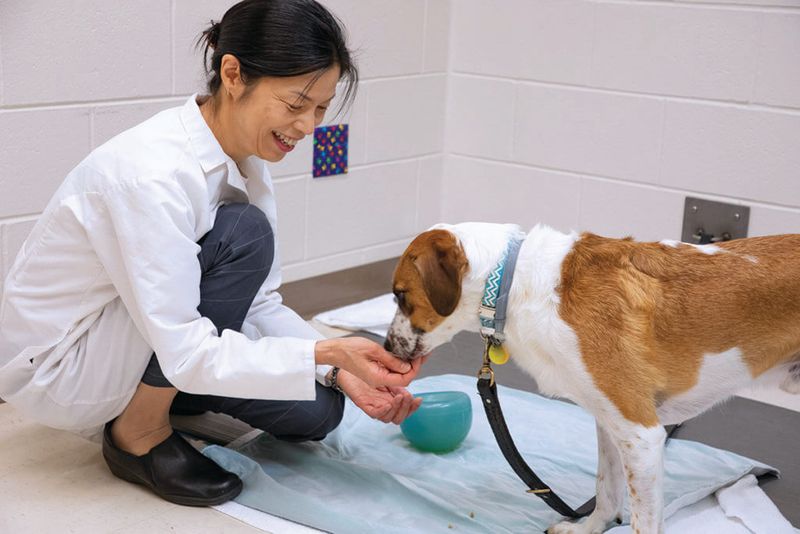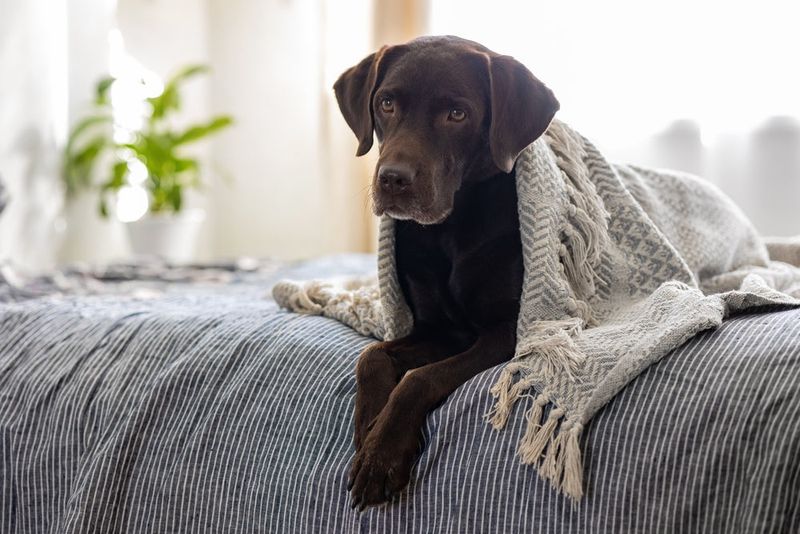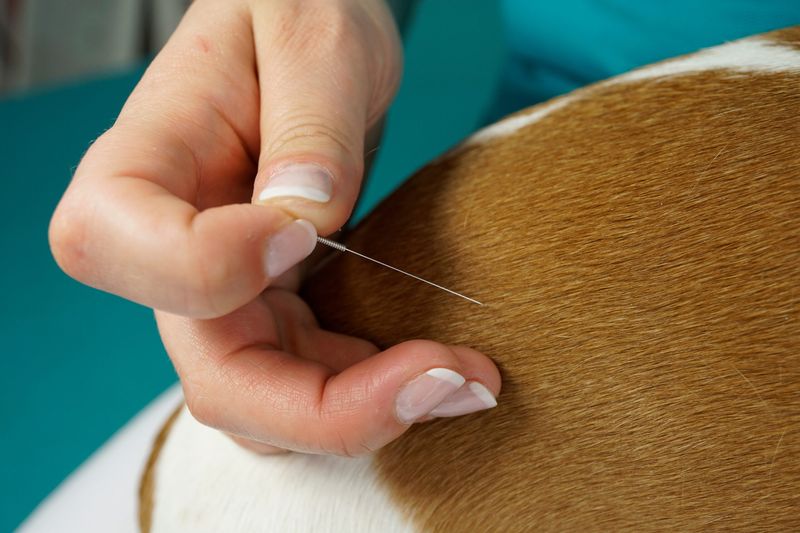Dog anxiety is a common concern that affects many pet owners. Fortunately, there are effective strategies to alleviate anxiety in dogs. This article explores 17 proven solutions that veterinarians recommend to help calm your anxious furry friends.
Weighted Anxiety Vest
Weighted anxiety vests provide gentle pressure to dogs’ bodies, mimicking the sensation of a comforting hug. This pressure can have a calming effect on anxious dogs. Originally inspired by techniques used in occupational therapy, these vests are now widely used to reduce stress in dogs.
Many owners report noticeable improvements in their pets’ behavior, especially during stressful situations like thunderstorms or fireworks. The vest’s snug fit offers a sense of security that helps dogs feel more at ease.
Easy to use and available in various sizes, this tool is a simple yet effective way to soothe your pet.
CBD Oil for Dogs
CBD oil has gained popularity as a natural remedy for many ailments, including dog anxiety. Derived from hemp, CBD oil is said to have calming properties without psychoactive effects.
Pet owners have found CBD oil to be particularly beneficial for dogs with separation anxiety or fears of loud noises. Its soothing effect helps pets remain calm and composed in stressful situations.
Consulting with a vet before using CBD oil ensures the appropriate dosage and safety for your pet. This natural solution offers a gentle way to alleviate anxiety.
Adaptil Calming Collar
The Adaptil calming collar releases a synthetic version of the dog-appeasing pheromone. This pheromone is naturally produced by lactating female dogs to comfort their puppies.
By mimicking this pheromone, the collar creates a sense of reassurance, helping dogs feel safer in their environment. It’s an excellent solution for dogs facing new experiences or environments.
Worn around the neck, the collar is both convenient and effective, providing constant comfort for up to 30 days. Aiding in relaxation, it promotes positive behavior changes in anxious dogs.
Aromatherapy with Essential Oils
Aromatherapy using essential oils is a holistic approach to managing dog anxiety. Oils such as lavender and chamomile are commonly used for their calming effects.
Diffusing these oils in your home creates a tranquil atmosphere that can help soothe an anxious pet. It is crucial to use pet-safe oils and consult with a vet to avoid any harmful effects.
This method offers a natural, gentle way to reduce anxiety, making your home a sanctuary for your beloved pet. The aromatic experience can be both relaxing and therapeutic for dogs.
Interactive Puzzle Toys
Interactive puzzle toys can be a great distraction for anxious dogs. They engage your pet’s mind, encourage problem-solving, and provide mental stimulation.
These toys are designed to challenge dogs and focus their attention away from stressors. As they work to solve the puzzles, dogs experience a sense of accomplishment, which can boost their confidence.
Offering a variety of toys keeps the experience fresh and exciting, transforming anxiety into playtime. This solution is excellent for dogs of all ages, making anxiety management a fun and rewarding experience.
Classical Music Therapy
Classical music therapy is a soothing remedy for anxious dogs. Studies have shown that the gentle melodies of classical compositions can help calm pets during periods of stress.
Playing soft music in the background can ease separation anxiety and create a serene environment for your pet. This technique is particularly useful in reducing anxiety during travel or vet visits.
The universal appeal of music offers a non-invasive, cost-effective way to help your furry friend relax. Elevate your dog’s comfort with the tranquil sounds of classical music.
Behavioral Training Techniques
Behavioral training is fundamental in addressing dog anxiety. Techniques such as positive reinforcement, desensitization, and counter-conditioning can significantly reduce anxiety levels.
Training sessions should be conducted in a calm environment, focusing on rewarding positive behavior. This approach builds trust between the pet and owner, alleviating anxiety over time.
Engaging a professional trainer can provide tailored strategies to meet your dog’s specific needs. Consistent training enhances your dog’s confidence, transforming anxious behavior into positive interactions with the world.
ThunderShirt Calming Wrap
ThunderShirt calming wraps apply gentle pressure to a dog’s torso, providing comfort in stressful situations. This sensation is akin to swaddling a baby, offering a sense of security and calm.
These wraps are particularly effective during thunderstorms, fireworks, and travel. Many pet owners notice immediate improvements in their dogs’ behavior when using a ThunderShirt.
Easy to put on and available in various sizes, the wrap is a practical, non-invasive way to ease anxiety. It transforms tension into tranquility for your cherished pet.
Herbal Supplements for Anxiety
Herbal supplements offer a natural alternative to alleviate dog anxiety. Ingredients like valerian root, passionflower, and chamomile are popular choices for their calming properties.
These supplements can help manage anxiety symptoms without the side effects of medication. It’s essential to consult a veterinarian to ensure safety and proper dosage.
Herbal remedies provide a gentle, holistic way to support your pet’s mental well-being. With a variety of options available, finding the right supplement can lead to a happier, more relaxed dog.
Dog Massage Therapy
Dog massage therapy is an effective way to reduce anxiety and improve overall well-being. Through gentle strokes and acupressure techniques, massage helps relax tense muscles and calm the mind.
This practice enhances circulation and promotes relaxation, making it an ideal bonding activity between the pet and owner.
Learning basic massage techniques or hiring a professional can offer immense benefits. This tactile approach to easing anxiety not only soothes your dog but also strengthens your connection, fostering a sense of peace and security.
Calming Dog Treats
Calming dog treats are a tasty solution for reducing anxiety. Infused with ingredients like L-theanine and tryptophan, these treats promote relaxation.
Designed to be both delicious and effective, they offer a convenient way to comfort anxious dogs. Ideal for use during travel, storms, or vet visits, calming treats make managing anxiety straightforward.
Offering these treats before a known stressor can help mitigate anxious behaviors. This method combines the joy of a treat with the benefit of soothing anxiety, making it a win-win for pets and owners alike.
Regular Exercise
Regular exercise is a vital component in managing dog anxiety. Physical activity helps channel excess energy and release endorphins, which elevate mood.
Daily walks, play sessions, and interactive games provide mental and physical stimulation, reducing stress and anxiety. This routine fosters a healthier, more balanced pet.
Engaging your dog in regular exercise not only benefits their physical health but also strengthens the bond between you and your pet. A well-exercised dog is a happier, more relaxed companion, ready to face the world with confidence.
Calming Crate Training
Calming crate training provides a safe, den-like environment for anxious dogs. When introduced positively, crates become a retreat where pets can relax and feel secure.
This method is particularly beneficial during travel or when guests visit. It’s essential to associate the crate with positive experiences, using treats and toys to encourage comfort.
A well-trained crate offers a sanctuary your dog can retreat to during anxiety-inducing situations. This safe haven approach ensures your pet has a comfortable space of their own.
Socialization Activities
Socialization is key to reducing anxiety in dogs. Exposing pets to various environments, people, and other animals helps them adapt and feel more comfortable in diverse situations.
Regular socialization activities can prevent anxiety from developing and improve overall behavior. Dog parks, training classes, and play dates offer opportunities for positive interactions.
Building social confidence is crucial for a well-adjusted pet. By integrating socialization into their routine, you provide your dog with the skills to navigate life’s challenges with ease and assurance.
Veterinary Consultation
Consulting a veterinarian is essential when addressing severe dog anxiety. A professional can assess your pet’s behavior and recommend appropriate treatments or therapies.
This may include medications, behavior modification plans, or referrals to specialists. Working with a vet ensures a tailored approach to your dog’s unique needs.
Early intervention can prevent anxiety from worsening and improve your pet’s quality of life. Trusting a veterinarian’s expertise offers peace of mind and effective solutions for managing anxiety.
Calm Environment Creation
Creating a calm environment is fundamental in managing dog anxiety. Ensuring a peaceful home with minimal loud noises, gentle lighting, and comfortable spaces can drastically reduce stress.
Incorporating elements like soothing music, aromatherapy, and cozy bedding contributes to a tranquil atmosphere.
This mindful approach encourages relaxation and provides a safe haven for your pet to unwind. A stress-free environment promotes overall well-being, making it easier for your dog to cope with anxious moments.
Acupuncture for Dogs
Acupuncture is a traditional Chinese therapy adapted for canine anxiety relief. This practice involves inserting thin needles into specific points on the body to promote balance and calm.
Many pet owners have observed positive changes in their dogs’ anxiety levels following acupuncture sessions. It’s a holistic approach that complements other therapies and enhances overall well-being.
Consulting a certified animal acupuncturist ensures safe and effective treatment. Acupuncture offers a unique, non-invasive solution for alleviating anxiety in dogs, promoting harmony and relaxation.
